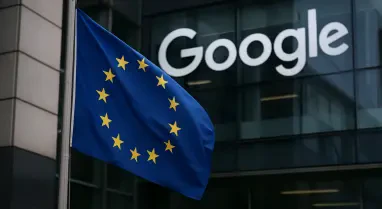In an era where digital privacy is increasingly under scrutiny, a significant clash between governmental authority and technological innovation has emerged in the United Kingdom, spotlighting the delicate balance between national security and individual rights. The UK government, through its Home Office, has issued a renewed demand to Apple, one of the world’s leading tech giants, to grant access to encrypted iCloud backups of British citizens. This request, framed as a “technical capability notice,” marks the second such order this year and reignites a heated debate over whether a government can compel a private company to compromise its encryption protocols. Apple, known for its staunch commitment to user privacy, has resisted these demands, arguing that weakening encryption could have far-reaching consequences beyond national borders. As this standoff unfolds, it raises critical questions about the limits of state power in the digital age and the sanctity of personal data in an increasingly interconnected world.
The UK Government’s Push for Access
The latest directive from the UK Home Office represents a focused effort to access encrypted iCloud data specifically tied to British citizens, a shift from an earlier, broader demand that sought worldwide user information. That initial request had sparked fierce opposition from U.S. officials, leading to its eventual withdrawal after diplomatic discussions. However, the current, narrower order still underscores the government’s unwavering stance that access to such data is vital for protecting national security. The Home Office has emphasized its duty to safeguard citizens, asserting that all necessary measures must be taken to prevent threats. While specifics about the order remain shrouded in operational discretion, the underlying intent is clear: the government views encrypted data as a potential barrier to effective law enforcement. This perspective reflects a broader global trend where state authorities prioritize security imperatives, often at the expense of privacy considerations, setting the stage for ongoing friction with tech companies.
This push for access is not without legal grounding, as the UK’s Investigatory Powers Act provides the framework for issuing technical capability notices. These notices are designed to ensure that tech companies can assist law enforcement when required, particularly in cases involving serious crime or terrorism. Yet, the application of such powers to encryption—a cornerstone of digital security—has proven contentious. Apple’s refusal to comply has led to a formal appeal before the Investigatory Powers Tribunal, with a hearing scheduled for early next year. Although the Home Office initially sought to keep proceedings confidential, a judge ruled against fully closed-door hearings, signaling a small but significant win for transparency. The outcome of this legal battle could set a precedent for how far governments can go in mandating access to private data, not just in the UK but in other jurisdictions watching closely. The stakes are high, as the resolution may redefine the relationship between state power and corporate responsibility in the digital realm.
Apple’s Stance on Encryption and Privacy
Apple has consistently positioned itself as a defender of user privacy, a principle it views as non-negotiable even in the face of governmental pressure. The company has publicly stated that creating backdoors or master keys to access encrypted data would undermine the security of all users, not just those targeted by the UK’s demands. This position is rooted in the belief that encryption is essential for protecting personal information from cyber threats, which are becoming more sophisticated by the day. Apple has also expressed regret over its inability to roll out Advanced Data Protection, an end-to-end encryption feature for iCloud backups, in the UK due to these ongoing disputes. While services like iMessage and FaceTime remain encrypted, the broader implications of yielding to government requests could erode trust in Apple’s commitment to safeguarding data. The tech giant’s resistance is thus framed as a defense of a fundamental right, resonating with privacy-conscious users worldwide.
Beyond its corporate philosophy, Apple’s concerns are echoed by privacy advocates who warn of the domino effect that weakening encryption could trigger. If vulnerabilities are introduced for UK users, the argument goes, they could be exploited by hostile entities, including criminals and adversarial states, endangering global digital security. This perspective highlights a critical tension: while the UK government sees encryption as a hurdle to law enforcement, Apple and its allies view it as a vital shield against an array of threats. The company has also pointed to the growing urgency of bolstering cloud storage security amid rising cyberattacks, expressing hope to eventually offer enhanced protections to UK users. This standoff is not merely a legal or technical dispute but a philosophical one, pitting the right to privacy against the imperatives of state security. As the debate continues, Apple’s unwavering stance serves as a reminder of the broader implications of government overreach in the digital landscape.
Global Implications and Future Considerations
The clash between the UK government and Apple is emblematic of a larger, global struggle over data privacy and security that transcends national boundaries. Should the UK succeed in compelling Apple to unlock encrypted iCloud data, it could embolden other governments to impose similar mandates, potentially leading to a patchwork of conflicting regulations for tech companies. Privacy advocates, such as those from international organizations, have cautioned that any compromise in encryption standards could create systemic weaknesses, making user data vulnerable on a worldwide scale. This concern is not hypothetical; cybercriminals and hostile actors are quick to exploit any security gaps, as evidenced by numerous high-profile breaches in recent years. The ripple effects of such a policy could thus undermine the integrity of digital ecosystems, affecting millions of users who rely on encryption for everything from personal communications to financial transactions.
Looking ahead, the resolution of this dispute will likely hinge on the upcoming tribunal hearing, which promises to be a pivotal moment in defining the boundaries of governmental authority over private technology. If Apple’s appeal fails, it may face intensified pressure to comply, potentially reshaping how tech giants operate under state directives. Conversely, a ruling in Apple’s favor could strengthen the case for encryption as an inviolable safeguard, encouraging other companies to adopt similar resistance. Beyond the legal outcome, this situation calls for a broader dialogue on balancing security needs with privacy rights, possibly through international agreements or new frameworks that address both concerns. As cyber threats evolve, finding common ground will be essential to protect users without compromising the tools that keep them safe. Reflecting on this standoff, it becomes evident that the path forward demands innovative solutions and collaborative efforts to navigate the complex intersection of technology and governance.






